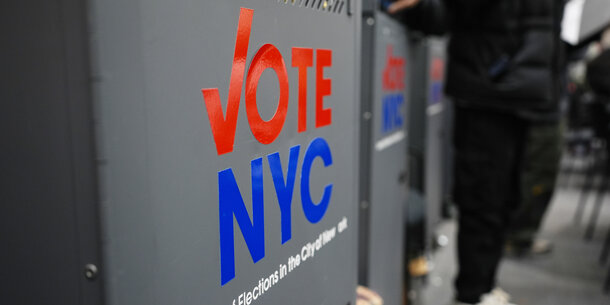You’re reading The Briefing, Michael Waldman’s weekly newsletter. Click here to receive it every week in your inbox.
Minnesota is about to bring 55,000 excluded voters back into the democratic fold. State law currently bars people on parole from voting. The legislature last week passed a bill to restore voting rights to people with criminal convictions once they have served their prison sentence. Gov. Tim Walz says he will sign it into law. It’s a real step forward for inclusion in Minnesota, where 6 percent of Black people and 9 percent of Native American people are currently unable to vote because of ongoing parole periods.
The move highlights the widening gulf between red- and blue-led states on voting rights. Last week, the Brennan Center published the most recent edition of our Voting Laws Roundup, which catalogs voting bills introduced in state legislatures nationwide. The report shows a house rapidly dividing against itself.
States with unified Democratic control overall are moving to make voting more inclusive and convenient. This trend is most visible where Democrats recently won full control over state government — where reforms had previously been stalled. Minnesota is considering 17 bills to expand voting access. Potential reforms include automatic voter registration, a permanent absentee voter list, and expanded access to voting materials in non-English languages. That’s a pretty good menu for a better democracy.
Democrats also won control of Michigan government in the 2022 elections, and officials are working on a major effort to expand and buttress the state’s democracy. Secretary of State Jocelyn Benson has already taken steps to protect election workers and keep guns away from polling places. She has signaled a plan to introduce a Voting Rights Act for the state, including non-English-language voting materials, improved polling access for people with disabilities, and prohibitions on various forms of voter suppression.
Things look very different, though, in states dominated by Republicans. At least 150 restrictive voting bills had been introduced in 32 states by January 25. These are just proposals, of course. But bad laws start out as bad bills.
Many of those bills seek to curb mail voting, while a large number would tighten identification requirements. Nebraska voters passed a ballot measure urging stricter ID rules, and the state’s legislators have introduced four separate such bills. (The problem, as the Brennan Center has made clear, is not an ID requirement per se — we have no problem with that. It’s requiring identification that too many people don’t have.)
Texas legislators did not meet in 2022. This year they have already introduced five election interference bills — changes that would allow state officials to meddle in the elections process by, for example, directing new resources to pursue the prosecution of election officials for ordinary conduct, establishing biased election review processes, or prohibiting the use of machines to count ballots for any election.
It’s a tale of two countries. Once, there was an expectation of a universal set of rights, nationally enforced by Congress and the Supreme Court. But last year Congress proved unable to pass a voting rights bill even with a majority in the Senate, thanks to the filibuster. If Congress can’t protect voting rights, and courts won’t, then states have free rein to do their worst.
Of course, it’s not only a regional divide, but a partisan one. That’s not unprecedented: Expanding voting rights has often been a partisan issue in the United States. When the Democrats moved to drop the property requirement for voting in the 1820s, they did so in the face of stiff Whig opposition. Black men won the right to vote after the Civil War without a single Democratic vote in favor. In 1992, President George H.W. Bush vetoed the “motor voter” bill only to see his successor, Bill Clinton, sign it into law less than a year later.
Not unprecedented, but not healthy, either. Congress came within a couple of votes last year of setting baseline nationwide standards for voting, which would have rendered many of the restrictive voting laws currently pending in both red and blue states patently illegal. Voting rights was more bipartisan within living memory. The last time the Voting Rights Act was reauthorized in 2006, it passed the Senate with 98 votes, and President George W. Bush proudly signed it into law. Just last December, a bipartisan bill clarified procedures under the Electoral Count Act. It’s not too late. Congress has the power — indeed, the constitutional responsibility — to establish one American democracy under one set of inclusive rules.




